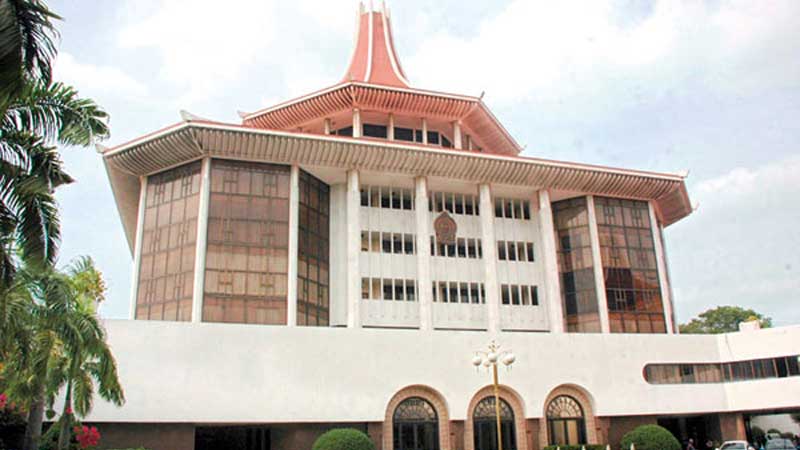The Supreme Court yesterday commenced hearing into the Special Determination petitions filed challenging the constitutionality of the Colombo Port City Economic Commission Bill.
A Supreme Court five-judge-bench comprising Chief Justice Jayantha Jayasuriya, Justice Buwaneka Aluwihare, Justice Priyantha Jayawardena, Justice Murdu Fernando and Justice Janak de Silva fixed the petitions for further hearing for today (20).
President’s Counsel Kanag-Isvaran appearing for the Center for Policy Alternatives and Transparency International Sri Lanka (TISL) argued that International laws do not recognise an artificially created land as a sovereign territory. Kanag-Isvaran said territory is recognized as naturally created land. He contended that the proposed bill has erroneously recognised this artificially created land as a crown land.
“Offshore banking businesses are not subjected to banking laws in the country. The banking laws and company act regulations would not apply to this specific territory. The monetary board would have no oversight over offshore banks. This will be a heaven for casino and money laundering,” Kanag-Isvaran added.
Counsel Darshana Weraduwage appearing for the President of the Association of Information Technology Professionals Sri Lanka (AITP) Kapila Renuka Perera raised preliminary objections against the proposed bill. Weraduwage claimed that the Bill was submitted to Parliament in an unconstitutional manner because it was not referred to any Provincial Council, despite the fact that the territory in question is situated within the Western Province.
He further said the proposed Bill would breach the people’s sovereignty and franchise rights guaranteed by Articles 1, 2 and 3 of the Constitution because the business entity would be operating without the representatives of the Republic.
President’s Counsel M.A. Sumanthiran appearing for Civil Society Activist Gamini Viyangoda said the judicial power of the country has been taken away by the Port City project as it proposed to resolve disputes by way of compulsory arbitration. Sumanthiran said the project would also bring benefits for people who are not residents of Sri Lanka.
Counsel Eraj de Silva appearing for UNP General Secretary Palitha Range Bandara, Ronald Perera PC appearing for UNP Chairman, Counsel Shantha Jayawardena appearing for former JVP MP Wasantha Samarasinghe also made their oral submissions.
Further submissions are to be resumed today at 10 a.m.
Meanwhile, Minister Prof. G.L. Peiris, Secretary to the President Dr. P.B. Jayasundera, Sri Lanka Podujana Peramuna (SLPP) General Secretary Attorney-At-Law Sagara Kariyawasam, SLPP Lawyers’ Association, Secretary to the Minister of Finance and Secretary to the Cabinet Ministers had sought the Court’s permission to intervene into these Special Determination petitions.
The Chief Justice announced that intervention petitioners would be given an opportunity to present their submissions after the conclusion of the submissions of petitioners.
Nineteen petitions have been filed so far against the Colombo Port City Economic Commission Bill. They are by; Samagi Jana Balawegaya General Secretary Ranjith Madduma Bandara, SJB Parliamentarian Harshana Rajakaruna, former JVP Parliamentarian Wasantha Samarasinghe, UNP Chairman Vajira Abeywardena, UNP General Secretary Palitha Range Bandara, Oshala Herath, Dr. Ajantha Perera, Jeran Jagatheesan who contested the 2020 General Election under the UNP ticket, President of BASL Saliya Pieris PC, BASL Secretary Rajiv Amarasuriya, Engineer Kapila Renuka Perera, Centre for Policy Alternatives and its Executive Director Paikiasothy Saravanamuttu, Transparency International Sri Lanka (TISL), Ven. Muruththettuwe Ananda Thera, G.S. Shyamalee, Nagananda Kodituwakku, Rajika Kodituwakku and Trade Union activist Lesley Devendra.
The petitioners are seeking a declaration that the Bill in whole or in part requires the approval by people at a Referendum and requires a two-thirds majority in Parliament.


